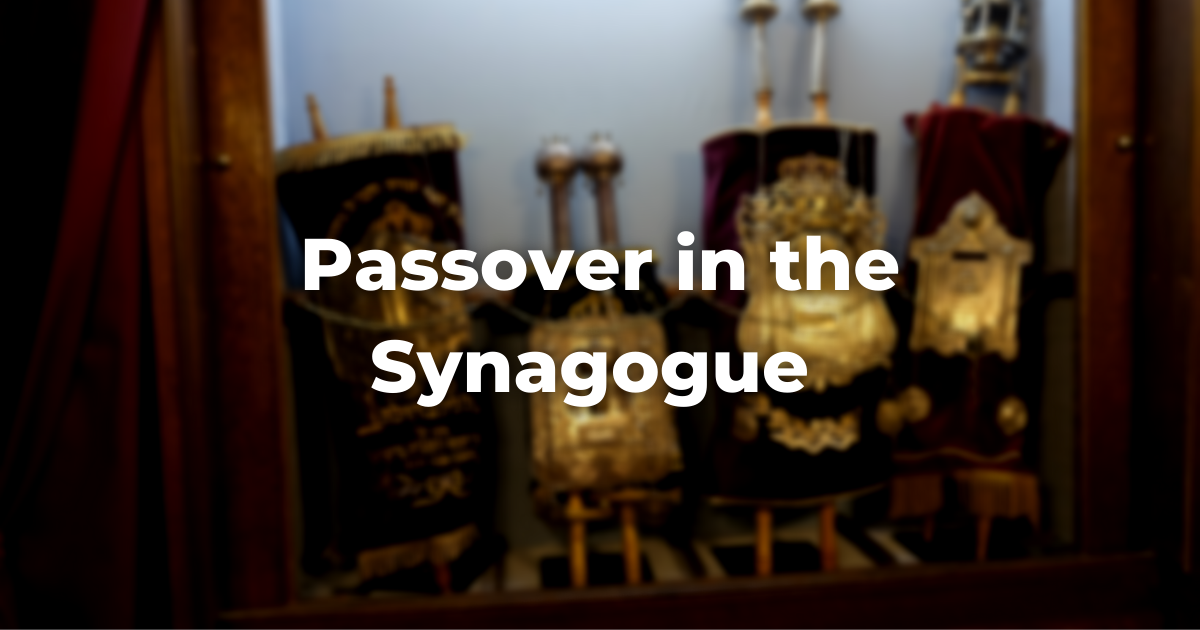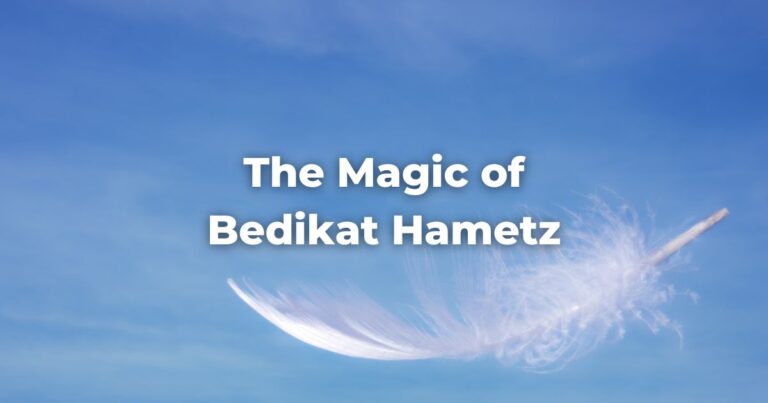What kinds of changes occur in Passover services in synagogue?
The Evening Service Before Passover
The Evening Passover Service follows the standard format for festival evenings, with the omission of Kiddush. On Shabbat, the three paragraphs that normally follow the chanting of Genesis 2:1–3 (the Va-y’khullu prayer) are also omitted.
The service is recited quickly, although in a dignified manner befitting the festival, so that worshipers may adjourn with reasonable haste to their seder tables.
The Holiday Morning Services
The Morning and Musaf Passover Services in synagogue also follow the standard outline. The full version of Hallel is recited on the first two days of the festival (SA Orach Chayyim 488:1).
On both the first two days of Passover, two Torah scrolls are taken from the Ark. On the first day, Exodus 12:21–51, which focuses on the observance of the first Passover when the Israelites were still in Egypt, is read from the first scroll.
This reading is divided into five aliyot unless it coincides with Shabbat, in which case it is divided into seven aliyot. The maftir portion, Numbers 28:16–25, which describes the sacrifices that were offered in the Temple on Passover, is read from the second scroll. The haftarah, Joshua 5:2–6:1, describes the way Passover was observed when the Israelites arrived in the Land of Israel.
On the second day of Passover, Leviticus 22:26–23:44 is read from the first scroll and the same maftir reading as on the first day is read from the second Torah scroll. The haftarah, 2 Kings 23:1–9 and 2 Kings 23:21–25, describes how Passover was observed in the days of King Josiah.
On the first day of Passover, a special Prayer for Dew is chanted as part of the opening benediction in the repetition of the Amidah in the Musaf Service, and thereafter the congregation stops inserting the phrase mashiv ha-ruah u-morid ha-gashem (“who causes the wind to blow and the rain to fall”) in the Amidah until the fall. (There are congregations, however, in which the phrase is omitted even in the silent recitation of the Amidah that precedes its public repetition.) In Israel, these words are henceforth replaced with the words morid ha-tal, referring to God as the source of dew in the world.
Adapted with permission from The Observant Life.
Authors
-

-



The Observant Life: The Wisdom of Conservative Judaism for Contemporary Jews distills a century of thoughtful inquiry into the most profound of all Jewish questions: how to suffuse life with timeless values, how to remain loyal to the covenant that binds the Jewish people and the God of Israel, and how to embrace the law while retaining an abiding sense of fidelity to one’s own moral path in life. Written in a multiplicity of voices inspired by a common vision, the authors of The Observant Life explain what it means in the ultimate sense to live a Jewish life, and to live it honestly, morally, and purposefully. The work is a comprehensive guide to life in the 21st Century. Chapters on Jewish rituals including prayer, holiday, life cycle events and Jewish ethics such as citizenship, slander, taxes, wills, the courts, the work place and so much more.



